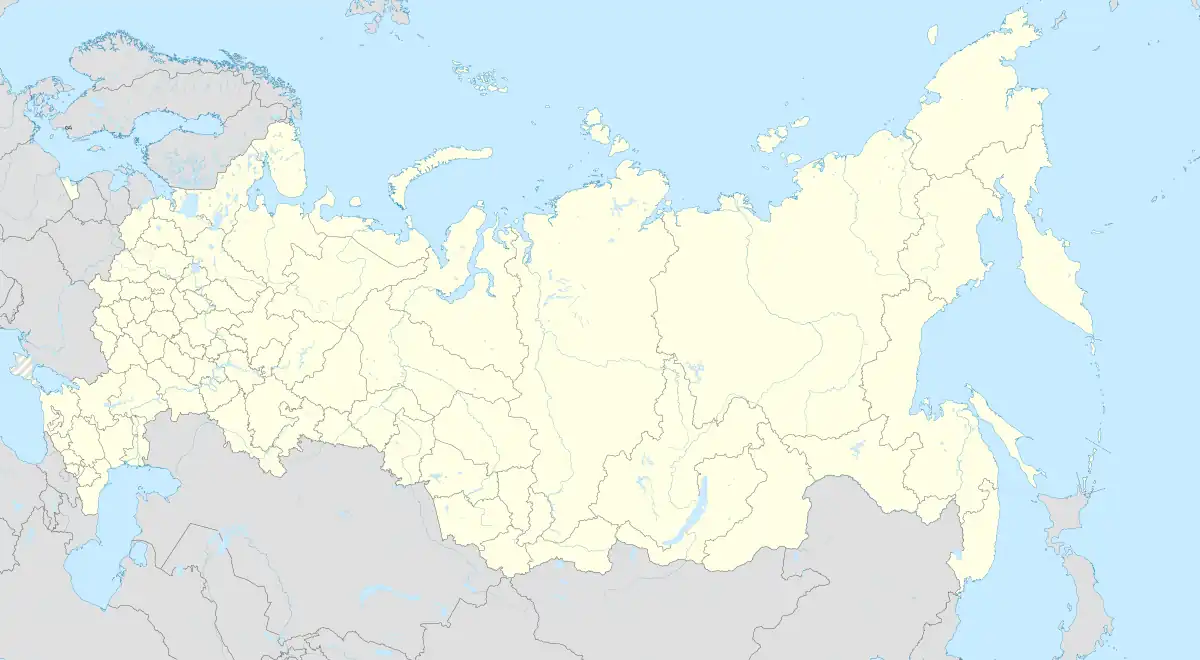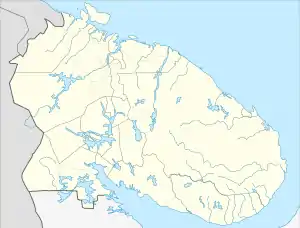Nautsi
Nautsi (Russian: Наутси) was a rural locality in Pechengsky District of Murmansk Oblast, Russian SFSR, Soviet Union. It lies on the east bank of the Paatsjoki River, which forms part of the border between Norway and Russia. Prior to it abandonment in 1962, Nautsi was the westernmost village in the Soviet Union.
Nautsi
Наутси | |
|---|---|
Posyolok (abolished) | |
 Nautsi in 1940 | |
Location of Nautsi | |
 Nautsi Location of Nautsi  Nautsi Nautsi (Murmansk Oblast) | |
| Coordinates: 69°0′1″N 29°3′20″E | |
| Country | Russia |
| Federal subject | Murmansk Oblast |
| Administrative district | Pechengsky District |
| Abolished | December 13, 1962 |
| Elevation | 96 m (315 ft) |
History
Prior to World War II, between 1921 and 1944, Nautsi was a Finnish village in Petsamo Province. Finnish forces retreated to this location in 1939 during the Winter War.[1] During World War II, Germany sought to capture this area because of the nearby nickel mines.[2]
Nautsi became a part of the Soviet Union in 1945. It was officially abolished on December 13, 1962.[3]
References
- Vernon Bartlett; W. Gordon Williams; Geoffrey Pomeroy Dennis, eds. (1940). The War of 1939. The Caxton Publishing Co. pp. 39–40.
- Mann, Chris; Jörgensen, Christer (2003). Hitler's Arctic War: the German campaigns in Norway, Finland, and the USSR, 1940-1945. Thomas Dunne Books. Macmillan. p. 212. ISBN 0-312-31100-1.
- Архивный отдел Администрации Мурманской области. Государственный Архив Мурманской области. (1995). Административно-территориальное деление Мурманской области (1920-1993 гг.). Справочник. Мурманск: Мурманское издательско-полиграфическое предприятие "Север". p. 215.
This article is issued from Wikipedia. The text is licensed under Creative Commons - Attribution - Sharealike. Additional terms may apply for the media files.